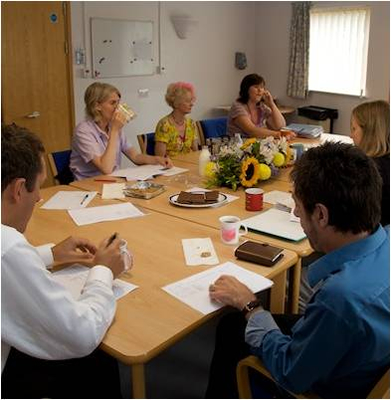Organisational Performance course for GPs



This session examines the sort of information used by healthcare organisations to assess their performance and considers how this information can be used to improve performance. This session supports leadership development in the clinical setting.
Learning Objectives
By the end of this session you will be able to:
- Describe the range of information that can be helpful in indicating performance
- Explain the formal mechanisms and approaches to organisational performance management in the NHS
- Analyse the information provided in a case study to identify key performance issues for a service and decide what actions may be necessary
- Consider how information about performance can be used to inform future plans
- Explore how performance is measured and managed in your own service
- Demonstrate your contribution to leadership by identifying appropriate performance indicators in your service
Performance management describes the activities that are used to monitor, measure and adjust organisational performance. Essentially it aims to improve quality.
Before commencing this session you should complete these sessions in the Introductory Module:
- Introduction to Leadership and LeAD
- Introduction to Medical/Clinical Leadership Competency Framework
Apryll Chase DFFP MRCOG currently works within the London Specialty School of Obstetrics and Gynaecology as Fellow in Management and Leadership in Education. She qualified at Guy’s, King’s and St Thomas’ School of Medicine and then continued her postgraduate training in London while maintaining her interest in medical education.
She is involved in developing creative and innovative solutions to address some of the challenges in training and transform education using simulation and e-learning. Her main interests are in postgraduate medical education, curriculum development and medical education research.
She has also been involved in undergraduate training for many University of London Medical Schools and currently works within King’s Medical School and is an external examiner at Barts and the London Medical School.
She has a longstanding interest in mentorship and inter professional education which is incorporated into her current roles. She is a participant in the Leadership programme of the London Deanery and her current roles include Chair of the South East Thames RCOG Trainees Committee, and trainees’ representative on the RCOG Examinations and Assessment committee and on the Education Board of the LSSOG.
She is currently pursuing postgraduate qualifications in Academic Practice and Leadership and has presented her work nationally and internationally.

- Epilepsy in People with Learning Disabilities cour...
- Posted By eIntegrity Healthcare e-Learning
- Posted Date: 2024-11-01
- Location:Online
- This session describes how to provide a high standard of care to patients with learning disabilities...
- Screening Programmes Part 2: Antenatal and Newborn...
- Posted By eIntegrity Healthcare e-Learning
- Posted Date: 2024-11-01
- Location:Online
- This session describes and discusses the NHS Fetal Anomaly Screening Programme, the NHS Newborn and ...
- Screening Programmes Part 1: Pregnancy and Newborn...
- Posted By eIntegrity Healthcare e-Learning
- Posted Date: 2024-11-01
- Location:Online
- This session will describe and discuss the following three NHS antenatal and newborn screening progr...
- Ensuring Quality: Role of the UK NSC, Policy Devel...
- Posted By eIntegrity Healthcare e-Learning
- Posted Date: 2024-11-01
- Location:Online
- This sessions offers you an understanding of how screening programmes are chosen and how their quali...
- Overview and Principles of Screening course for Ge...
- Posted By eIntegrity Healthcare e-Learning
- Posted Date: 2024-11-01
- Location:Online
- This session provides an overview of the principles and practice of screening, clarifying relevant t...





